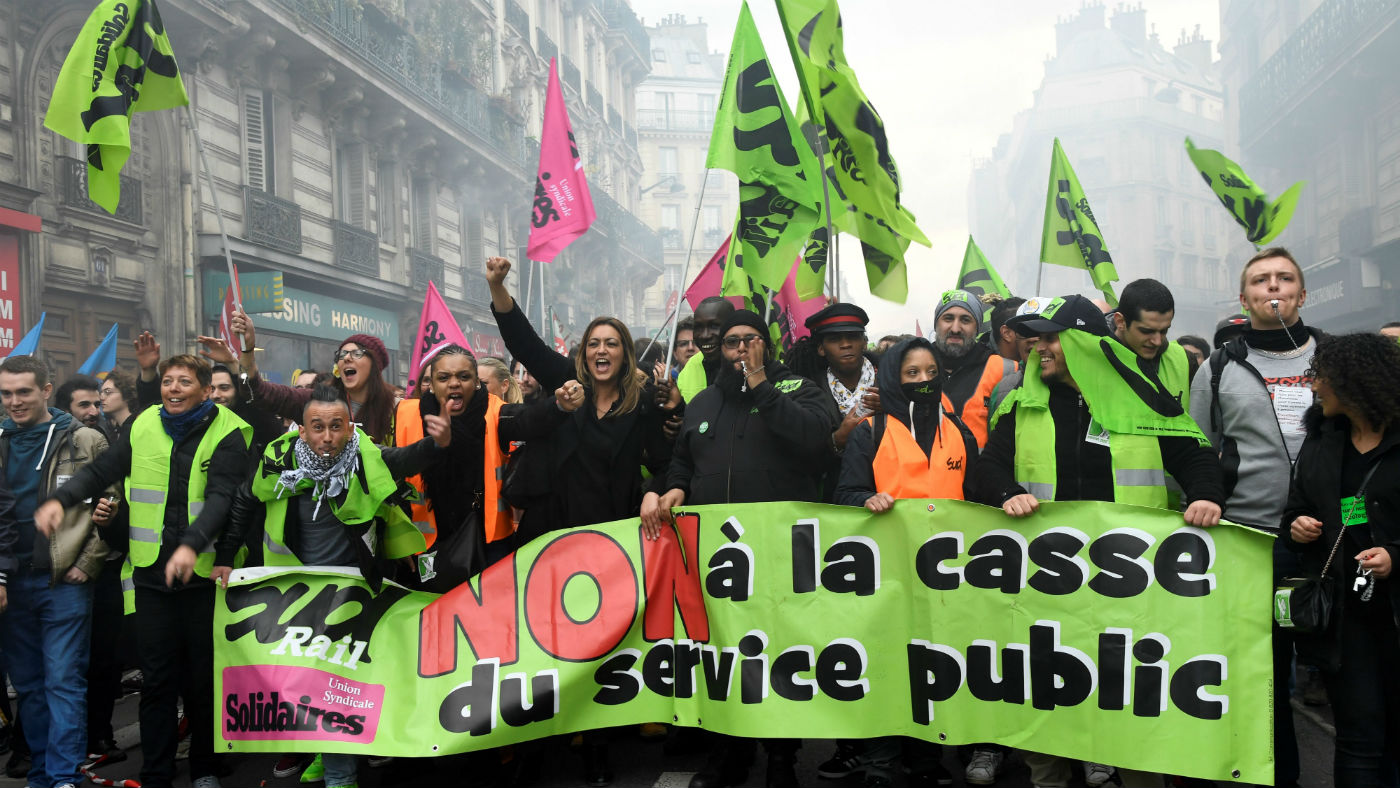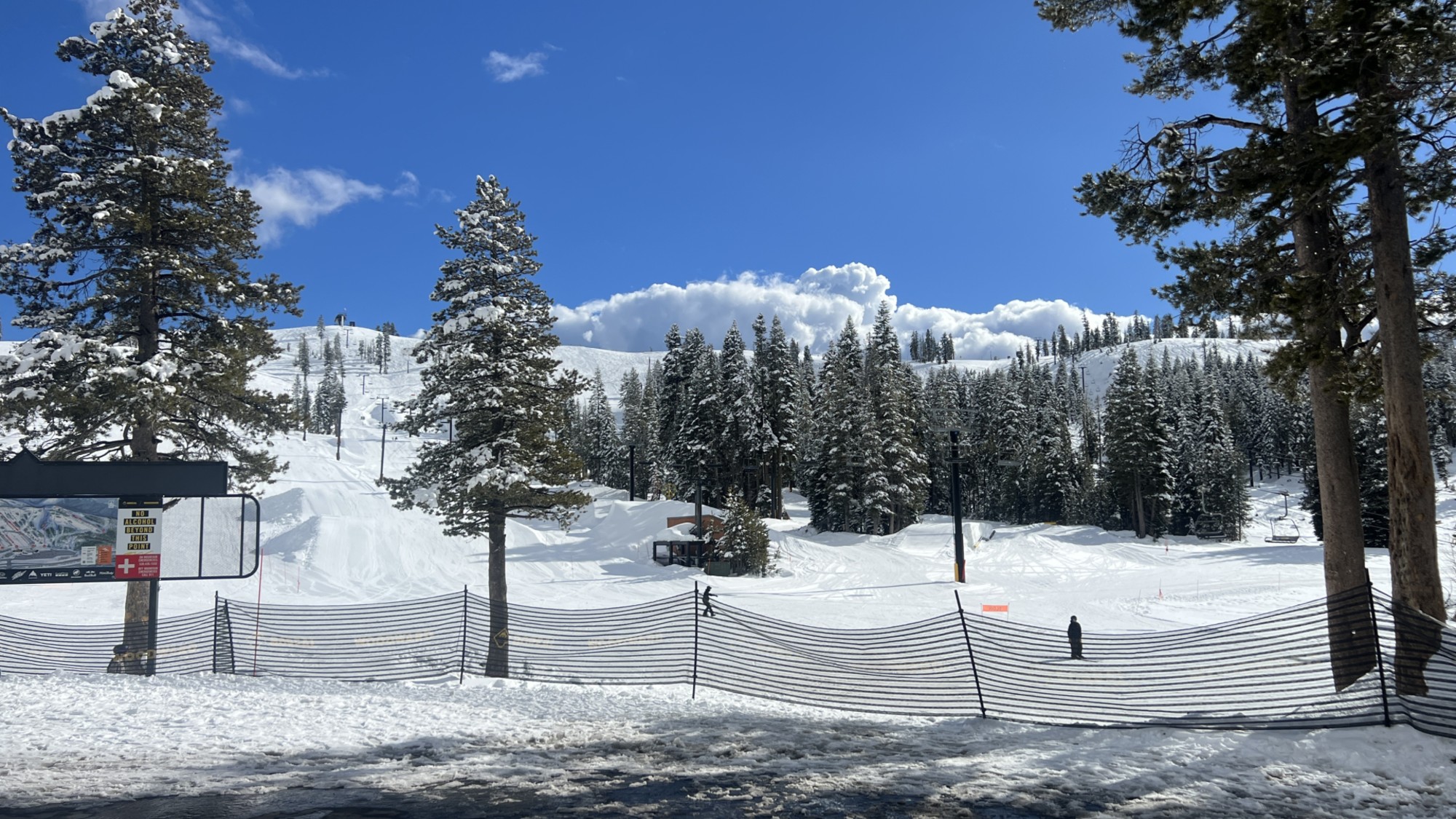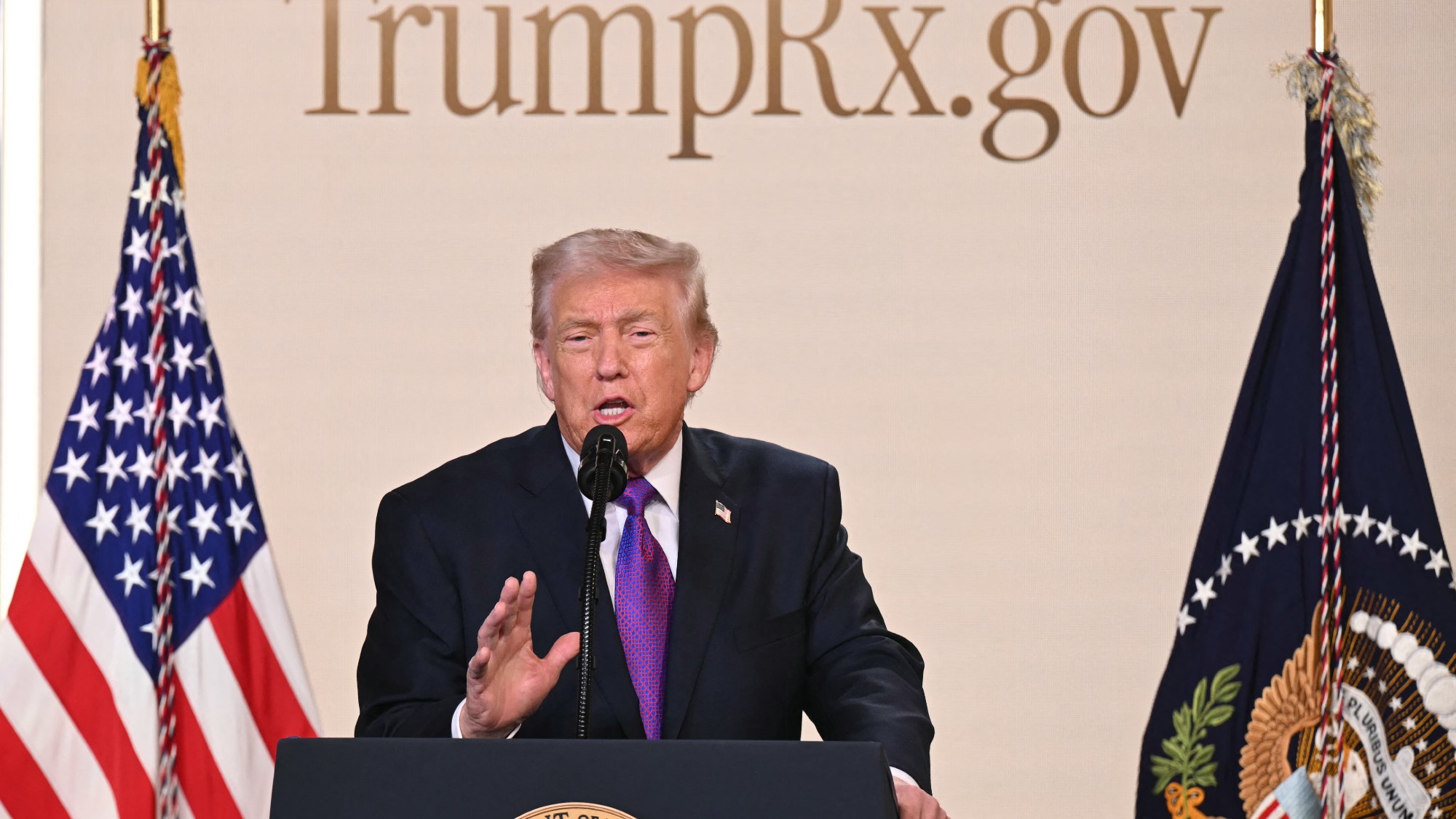Three-month rail strike brings France to a standstill
Workers walk out in protest over Emmanuel Macron’s reforms

A free daily email with the biggest news stories of the day – and the best features from TheWeek.com
You are now subscribed
Your newsletter sign-up was successful
French rail staff brought the country to a standstill yesterday with the first day of a three-month rolling strike in protest over Emmanuel Macron’s plans to overhaul state transport and liberalise the economy.
Dubbed “Black Tuesday” by the French media, the strikes are expected to see more than 75% of drivers walk out for two days out of every five until the end of June. All four main rail unions are observing the strike, with only one in eight high-speed TGV trains scheduled to run.
The coordinated protest, which followed a nationwide ‘day of action’ last week, “threatens to become the largest and most chaotic industrial action” against Macron’s reforms, says The Guardian.
The Week
Escape your echo chamber. Get the facts behind the news, plus analysis from multiple perspectives.

Sign up for The Week's Free Newsletters
From our morning news briefing to a weekly Good News Newsletter, get the best of The Week delivered directly to your inbox.
From our morning news briefing to a weekly Good News Newsletter, get the best of The Week delivered directly to your inbox.
Air France employees are also on strike, and there are calls for rubbish collectors and energy sector workers to walk out in solidarity.
The Guardian says the rail sector is “traditionally one of France’s riskiest political issues; a battleground on which Macron is refusing to budge in order to prove that he can face down strikes and continue with a liberalising overhaul of other sectors”.
The BBC says the unrest “presents Macron’s biggest challenge since his election last May”. However, “there are three reasons why President Macron feels relatively optimistic about the rail strike”, says the BBC’s Paris correspondent, Hugh Schofield.
First, unlike the last successful mass strike in the 1990s, “this time there can be no mistaking the government’s intention to reform”, fulfilling as it does one of Macron’s central campaign pledges on which he was elected.
A free daily email with the biggest news stories of the day – and the best features from TheWeek.com
Second, there is far less sympathy for rail workers after years of steadily declining services. And third, changes to working practices in recent years means more people can work remotely, lessening the impact of the strike.
All that said, “these will be tense weeks for the government”, says Schofield, “a wrong move and public opinion could easily shift back behind the strikers”.
-
 Democrats seek calm and counterprogramming ahead of SOTU
Democrats seek calm and counterprogramming ahead of SOTUIN THE SPOTLIGHT How does the party out of power plan to mark the president’s first State of the Union speech of his second term? It’s still figuring that out.
-
 Climate change is creating more dangerous avalanches
Climate change is creating more dangerous avalanchesThe Explainer Several major ones have recently occurred
-
 What’s TrumpRx and who is it for?
What’s TrumpRx and who is it for?The Explainer The new drug-pricing site is designed to help uninsured Americans
-
 A student’s death energizes the French far right
A student’s death energizes the French far rightIN THE SPOTLIGHT Reactions to the violent killing of an ultraconservative activist offer a glimpse at the culture wars roiling France ahead of next year’s elections
-
 Greenland’s capital becomes ground zero for the country’s diplomatic straits
Greenland’s capital becomes ground zero for the country’s diplomatic straitsIN THE SPOTLIGHT A flurry of new consular activity in Nuuk shows how important Greenland has become to Europeans’ anxiety about American imperialism
-
 Epstein files topple law CEO, roil UK government
Epstein files topple law CEO, roil UK governmentSpeed Read Peter Mandelson, Britain’s former ambassador to the US, is caught up in the scandal
-
 Iran and US prepare to meet after skirmishes
Iran and US prepare to meet after skirmishesSpeed Read The incident comes amid heightened tensions in the Middle East
-
 Israel retrieves final hostage’s body from Gaza
Israel retrieves final hostage’s body from GazaSpeed Read The 24-year-old police officer was killed during the initial Hamas attack
-
 China’s Xi targets top general in growing purge
China’s Xi targets top general in growing purgeSpeed Read Zhang Youxia is being investigated over ‘grave violations’ of the law
-
 Panama and Canada are negotiating over a crucial copper mine
Panama and Canada are negotiating over a crucial copper mineIn the Spotlight Panama is set to make a final decision on the mine this summer
-
 Why Greenland’s natural resources are nearly impossible to mine
Why Greenland’s natural resources are nearly impossible to mineThe Explainer The country’s natural landscape makes the task extremely difficult